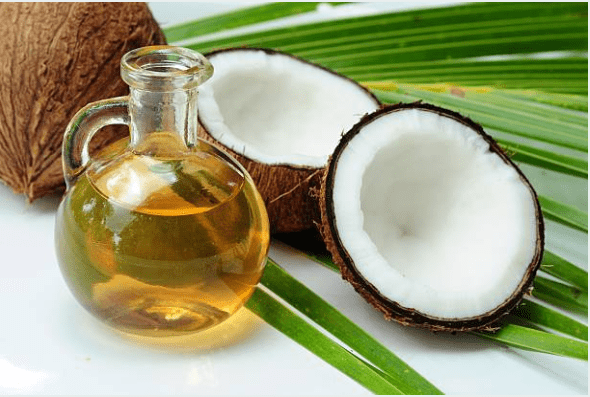What to do when you are suspected or confirmed to have COVID-19 in Philippines
By: Margo Hannah De Guzman Quadra
|
Published on: September 22, 2020

Efforts to stop the spread of COVID-19 in the Philippines include the development of personal protection products, immunity-boosting food and beverages, vaccine and treatment trials.
The Philippines has seen decreasing and rising cases of coronavirus disease since it first hit the country in 2020.
The end of the pandemic is still not within sight and so Filipinos are advised to be fully informed on what to do when they are suspected or confirmed to have the virus.
The novel coronavirus disease (COVID-19), also known as the SARS-CoV-2 disease, is a new strain of coronavirus that caused severe pneumonia and deaths in China and has since been exported to other countries including the Philippines.
The coronavirus is transmitted from person to person via droplets and contact when one individual talks, sneezes, or coughs producing ‘droplets’ of saliva containing the virus. Transmission usually occurs among close contacts, including family members, co-workers, and even healthcare workers.
Since the outbreak of COVID-19 was identified in early 2020, many steps have been taken around the world to help prevent the spread of the highly contagious disease. Varying guidelines and health safety protocols have been put into place.
If you suspect you have the virus, were exposed to someone with the virus, or have tested positive for COVID-19, you can help stop the spread of COVID-19 to others.
SYMPTOMS

The Department of Health (DOH) identifies three categories for potential coronavirus cases as prescribed by the World Health Organization (WHO). According to released health guidelines on April 17, 2020, a person is considered ‘suspect’ if he/she harbors a fever of 38°C or higher, cough or sore throat, shortness of breath, and acute respiratory signs.
- A suspected case may have traveled to an area with reported local transmission of the coronavirus during the 14 days prior to the onset of symptoms.
- Those with influenza-like illness (ILI) who has had contact with a confirmed or probable case of COVID-19.
- Showing the above symptoms and is any one of the following:
- 60 years or older
- Has a pre-existing medical condition
- Assessed with a high-risk pregnancy
- Is a health worker
Suspected individuals who are 60 years or older and/or with underlying health conditions should contact emergency services and seek immediate medical attention. Those experiencing mild pneumonia or breathing difficulties should likewise contact their local health provider or emergency hotline.
A confirmed COVID-19 case refers to any individual who has tested positive for the virus through laboratory confirmation at the national reference laboratory, subnational reference laboratory, or a DOH-certified laboratory testing facility.
Probable COVID-19 cases pertain to a suspect case whose testing for the virus is inconclusive, tested positive but whose test was not conducted in a
national/subnational reference laboratory or officially accredited laboratory for COVID-19 confirmatory testing, or a suspect case who has died without undergoing any confirmatory testing.
ISOLATION AND PROTOCOL

The Philippine government placed the country under varying levels of community quarantine (ECQ, MECQ, GCQ, MGCQ) since March 2020 to mitigate COVID-19 transmission in the country.
The Department of Health (DOH) urges anyone with even the slightest suspicion or symptoms of COVID-19 to isolate or self-quarantine.
“Whether you are tested or not, please isolate. If you have been in contact with someone who has symptoms or has tested positive, please isolate immediately. If you are unsure if you have been exposed to a person with the virus, again please isolate,” Health Undersecretary Maria Rosario Singh-Vergeire stressed in a press release on August 26.
Self-isolation refers to the “strict isolation of a suspect, probable or a confirmed case of COVID-19 with mild symptoms in a separate room or area in the household, for the whole duration that he/she is symptomatic.”
While self-quarantine pertains to the “strict quarantine of a contact of COVID-19 in a separate room or area in the household, for the whole duration of fourteen (14) days.”
The following guidelines have been released to help curb the spread of the virus while under quarantine or home isolation:
- Staying in a room with a toilet, to prevent interaction with family member/s
- Wearing of face masks
- Proper disinfection of surfaces and personal belongings handled by suspected person (with 70% alcohol or bleach solution)
- Healthy diet and sleep habits (7-8 hours)
- Intake of medicine as prescribed by a health professional (avoid self-medication)
- Close monitoring of symptoms
Local government units (LGUs) or your respective Barangay Health Emergency Response Team (BHERT) must check on the home of the suspected case daily for close monitoring.
BHERTs serve as the first line of response to patients in the community and coordinates the referral of patients for quarantine and isolation.
If self-isolation is proven not to be ideal based on assessment (e.g. crowded living conditions, vulnerable persons in the household), the contact, suspect, probable, or confirmed case of COVID-19 with mild symptoms shall be admitted to a quarantine health facility.
People are also advised to coordinate with their local barangay channels for assistance.
Visit the ONE Hospital Command Center to find a hospital that can accommodate you.
WHO TO INFORM

The UP College of Pharmacy’s licensed pharmacists will answer questions about medications.
Those showing indicators of COVID-19 should confirm their symptoms with a health professional who can be reached through the 24/7 DOH Telemedicine hotline or through their BHERT, to determine the need for testing.
DOH Telemedicine 24/7 hotlines:
– NCR residents: 02 84241724 or 02 77988000
– Non-NCR residents: 1555 or 02 89426843
– Telemedicine partners: SeeYouDoc, CloudPx, HealthNowPH (Through online consultation)
The overall aim of the hotline is to enable patients to receive health services even while staying at home except for serious conditions, emergencies, or to avail of COVID-19-related health services as per standing protocols.
Callers can ask questions if they suspect they are infected with COVID-19, or request assistance if they have symptoms and/or known exposure to confirmed cases or patients under investigation. The information collected from emergency calls is transmitted to the COVID-19 Emergency Operations Center and other relevant agencies for immediate facilitation and response.
The DOH advises those experiencing severe symptoms for COVID-19 (breathing difficulties, chest pain, anxiety, bluish lips or face) to seek immediate medical attention by contacting their BHERT or the DOH hotline: (02) 894 COVID (26843) or 1555 for all cellular networks.
The principal health agency of the Philippines assures callers that data or personal information collected from these assessments will be treated with the utmost confidentiality and shall likewise be privy to concerned healthcare providers, public health authorities, and DOH partner agencies.
COVID-19 TESTING

SM has done repeated rounds of rapid testing and rt-PCR testing for its employees and agency workers.
An individual has to secure an assessment from a licensed health professional to get tested for COVID-19.
“Those who think they are infected will still need to be assessed by a health professional. They can do this in the comforts of your home through Telemedicine consultations,” the DOH Health OIC-Undersecretary explained during the Beat COVID-19 Virtual Presser in April.
Consultations through the department’s Telemedicine hotlines shall assess if the symptomatic individual needs a referral to a health facility to be tested for the virus.
The DOH has also ramped up its COVID-19 testing operations in response to the growing number of cases recorded in the Philippines. The department listed 117 accredited testing laboratories in the country as of September 4, 2020.
The Philippines introduced its first automated COVID-19 testing laboratory which reduces the collection of swabbing specimens to an average of 6 minutes. It also welcomed the world’s first airport-based PCR testing lab at Mactan-Cebu International Airport (MCIA).
The City of Metro Manila established its drive-thru COVID-19 testing center open for both Manila City residents and non-Manila City residents.
The Philippine Red Cross (PRC) biggest molecular laboratory in the Visayas islands opened in August for COVID-19 swab tests and processing.
CHECK OUT this article on Red Cross RT-PCR tests using saliva and nose swab specimens.
Here’s how you can get tested and find COVID-19 Testing Centers near you using Google Maps.
You can also have your test done by the developer and distributor of the Philippines’ first Covid 19 test kit at the UP Manila, the Manila HealthTek Inc.
TRANSPORT
LGUs and their municipal health units are responsible for facilitating transportation for suspected, probable, and confirmed cases who need to be referred to a higher level of care, as well as for samples to be submitted to the laboratory.
CONTACT TRACING

Contact tracing is the identification, listing, and follow-up of persons who may have come into close contact with a confirmed COVID-19 case.
The DOH defines close contact/s as a person who may have been exposed to a probable or confirmed case two days prior to the onset of illness of the confirmed COVID-19 case through:
- Face-to-face contact with a probable or confirmed case within 1 meter for more than 15 minutes;
- Direct physical contact with a probable or confirmed case;
- Direct care for a patient with probable or confirmed COVID-19 disease without using proper personal protective equipment; or
- Other situations as indicated by local risk assessments.
Contact tracing shall prioritize the following close contacts:
- Health workers who attended to the confirmed COVID-19 case
- Individuals who lived with the confirmed case
- Individuals who worked with the confirmed case
- Vulnerable populations (the elderly, those with pre-existing medical conditions, etc.)
The University of the Philippines set up the ENDCOVPH tracker accessible by the public to help the nation monitor the status of cases.
The University of the Philippines-Philippine General Hospital (UP-PGH) associates household contact as the highest risk for infection at 10.2 percent. All are advised to maintain a distance of more than 1 meter away from any person who has respiratory symptoms.
The same guidelines are used for suspect COVID-19 cases to list the individuals they were in contact with. Those in close contact with suspect cases shall be advised to practice self-quarantine and self-monitoring, and report development or progression of signs or symptoms. They will also be updated regarding the laboratory status of the suspect COVID-19 case and will be reclassified as needed.
LGUs together with the BHERT and other contact tracing personnel shall check on close contacts under quarantine for development or progression of signs and symptoms of the disease.
Those in close contact with symptomatic cases who remain so at the end of their 14-day quarantine should remain in self-isolation while the suspect case is re-assessed and managed according to updated clinical practice guidelines.
Close contacts who successfully completed their 14-day home-based quarantine and remain asymptomatic shall be issued a certificate of quarantine completion by the provincial, city, or municipal health officer.
TREATMENT
The designated infection control committee (ICC) of the hospital shall be responsible for the preliminary investigation of cases. Once the case is classified as a person under investigation (PUI), he/she should be quarantined. The ICC should then notify the DOH Regional Epidemiology and Surveillance Units (RESU), who shall then report to the DOH Epidemiology Bureau.
Patients need to undergo examinations such as an x-ray or CT scan and a blood test for monitoring purposes, prior to admission.
The current treatment protocol for COVID-19 patients is only supportive due to the absence of FDA-approved medicines that are effective against the virus.
Patients who experience severe to moderate breathing problems are transported to the Intensive Care Unit (ICU). Ventilators are then used to support COVID-19 patients in critical condition to help them breathe when their lungs fail.
VACCINE AND TREATMENT TRIALS

DOST Philippines has met with local pharmaceutical industry representatives to explore collaboration on vaccine development. Photo from W.H.O.
There are now varied vaccines and treatments that continue to be under investigation for efficacy against Covid 19.
Check out this Covid Queue Calculator developed for the Philippines to find out when you are most probably to receive the vaccine.
It has been seen that many of the symptoms can be treated based on the patient’s clinical conditions. Supportive care for infected persons can also be highly effective.
WHO Solidarity Vaccine Trial
The DOH and DOST both stated their strong support and commitment for the Philippines’ participation in the World Health Organization (WHO) Solidarity Vaccine Trial which is part of a global effort to end COVID-19.
The international clinical trial tests the safety and effectiveness of four possible therapies in treating COVID-19, namely: the investigational antiviral Remdesivir, antimalarial drug Chloroquine or Hydroxychloroquine, antiretroviral drugs used to treat HIV Lopinavir with Ritonavir, and Lopinavir with Ritonavir plus Interferon beta-1a.
More than 100 countries have joined the Solidarity Trial with thousands of test patients participating in the world’s race to find a cure for the virus.
Avigan
In a statement, Health Undersecretary Maria Rosario Vergeire said the DOH is currently in talks with the Japanese officials for the supply of the anti-flu medications for the clinical trial.
The Japanese Prime Minister Shinzo Abe has been pushing for Avigan or favipiravir as a potential cure for the disease after it reportedly yielded positive results in treating COVID-19 patients in China.
Vergeire earlier said that the free supply of Avigan from Japan would be administered to 100 local COVID patients who are to take part in the trials.
The DOH is targeting the start date for the clinical trials of Japanese anti-flu drug Avigan in September 2020.
Convalescent Plasma
The UP-PGH has started its clinical studies for Convalescent Plasma Transfusion as a possible treatment for COVID-19 patients.
The hospital study on the experimental treatment involves the use of plasma taken from the blood of recovered COVID-19 patients for transfusion to patients in the hopes that these contain neutralizing antibodies against the disease to help boost immune systems to fight off infections.
Philippine General Hospital and St. Luke’s Medical Center are the only hospitals certified to collect convalescent plasma for use in its treatment protocol.
Though used for COVID-19 treatment protocol in some local hospitals, its effectiveness as a therapy is still being evaluated and not yet part of the standard of care. To date, there is no concrete evidence to show that it is effective against COVID-19.
The UP-PGH is calling for blood donations from COVID-19 survivors.
Natural Remedies

Philippine Virgin Coconut Oil as an anti-viral treatment is now undergoing clinical trials. Photo from Fortunato de la Peña Facebook.
The Philippine General Hospital is a designated COVID-19 referral center that is exploring several treatment options for the virus at the moment, including the use of Virgin Coconut Oil (VCO) and in its effectiveness in coronavirus disease 2019 (Covid-19) patients’ recovery.
Department of Science and Technology (DOST) is also funding studies for traditional herbs Tawa-Tawa and Lagundi as treatments for patients with the novel coronavirus.
DOST Secretary Fortunato De la Peña remarked that both natural products had anti-viral properties with Lagundi as a popular treatment for cough and Tawa-Tawa for increasing the blood platelet count in patients.
Coronavirus Immunity boosting drinks made from local ingredients have also been developed by the Department of Science and Technology Small Enterprise Technology Upgrading Program (DOST-SETUP) partner in Davao as health drinks for COVID-19 frontliners.
These guidelines are lifted from releases of the World Health Organization and the Department of Health-Philippines.
CHECK THIS OUT: Updated Guidelines on Community Quarantine in the Philippines
SEE: Guidelines for Staycation Tourists
Want to know how to be a Proud Pinoy? Like, Follow, Subscribe to GoodNewsPilipinas.com, and our socials on Facebook, Twitter, Instagram, Good News Pilipinas! TV on YouTube, for new story notifications, and e-mail newsletters for updates on more Filipino Pride stories.
